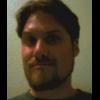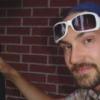Hank the Church doesn't credit the idea of a singularity as possible because they believe god is essentially the singularity from their perspective. If they consider it anything at all it would be that the very idea of a man-made singularity would represent consummate evil as an affront to their god.
I suspect having studied their arguments for years that the problem revolves around the twin aspects of the definition of life; biology and sentience. Biology is one avenue and artificial intelligence is the other in this quest and the problem is that for years they said it was IMPOSSIBLE to create life, either biological or in terms of true AI. They suspect that if the theist argument unravels this could be very damaging to the credibility of the Church in much the same way they moved to suppress Copernicus because of how they had built their philosophical framework around Ptolemy.
The issue is also about power, who has it, what is it and how it should be wielded.
BTW, this Pope recently created an outcry by trying to reconcile Darwinism with ID. He does advocate standard evolutionary thinking but promotes the idea of God as the initiator. He also recently gave a speech in which he tried to unite moderate Muslims and Christians in fear of technological trends.
In the speech that got him in trouble with the world the brouhaha caused most people to overlook the actual theme of the speech.
http://www.opendemoc...cience_3918.jspPope Benedict XVI: science is the real target
Ehsan Masood
19 - 9 - 2006
A deeper reading of Pope Benedict's Regensburg speech suggests a message that Catholics and Muslims can share, says Ehsan Masood: that modern science must make room for theology.
At the University of Siena in Italy, the Pontignano conference on the future of Europe's universities on 15-17 September 2006 was in full flow when word began to circulate that Pope Benedict XVI was in trouble over a lecture he had given to scientists in Germany. His 12 September speech on faith, reason and universities was being seen as an attack on Islam.
(excerpt)
BTW here is the text of the previous speech.
http://www.guardian....1873277,00.htmlIn it he says:
This profound sense of coherence within the universe of reason was not troubled, even when it was once reported that a colleague had said there was something odd about our university: it had two faculties devoted to something that did not exist: God.
That even in the face of such radical scepticism it is still necessary and reasonable to raise the question of God through the use of reason, and to do so in the context of the tradition of the Christian faith: this, within the university as a whole, was accepted without question.
(the next few passages caused the uproar in the Islamic world. I am taking them out to get beyond them. Go to the link for the entire speech)
This gives rise to two principles which are crucial for the issue we have raised. First, only the kind of certainty resulting from the interplay of mathematical and empirical elements can be considered scientific. Anything that would claim to be science must be measured against this criterion. Hence the human sciences, such as history, psychology, sociology and philosophy, attempt to conform themselves to this canon of scientificity.
A second point, which is important for our reflections, is that by its very nature this method excludes the question of God, making it appear an unscientific or pre-scientific question. Consequently, we are faced with a reduction of the radius of science and reason, one which needs to be questioned.
I will return to this problem later. In the meantime, it must be observed that from this standpoint any attempt to maintain theology's claim to be "scientific" would end up reducing Christianity to a mere fragment of its former self.
But we must say more: if science as a whole is this and this alone, then it is man himself who ends up being reduced, for the specifically human questions about our origin and destiny, the questions raised by religion and ethics, then have no place within the purview of collective reason as defined by "science", so understood, and must thus be relegated to the realm of the subjective. The subject then decides, on the basis of his experiences, what he considers tenable in matters of religion, and the subjective "conscience" becomes the sole arbiter of what is ethical.
In this way, though, ethics and religion lose their power to create a community and become a completely personal matter. This is a dangerous state of affairs for humanity, as we see from the disturbing pathologies of religion and reason which necessarily erupt when reason is so reduced that questions of religion and ethics no longer concern it. Attempts to construct an ethic from the rules of evolution or from psychology and sociology, end up being simply inadequate.
****
The positive aspects of modernity are to be acknowledged unreservedly: we are all grateful for the marvellous possibilities that it has opened up for mankind and for the progress in humanity that has been granted to us.
The scientific ethos, moreover, is - as you yourself mentioned, Magnificent Rector - the will to be obedient to the truth, and, as such, it embodies an attitude which belongs to the essential decisions of the Christian spirit.
The intention here is not one of retrenchment or negative criticism, but of broadening our concept of reason and its application. While we rejoice in the new possibilities open to humanity, we also see the dangers arising from these possibilities and we must ask ourselves how we can overcome them. We will succeed in doing so only if reason and faith come together in a new way, if we overcome the self-imposed limitation of reason to the empirically verifiable, and if we once more disclose its vast horizons.
Edited by Lazarus Long, 26 October 2006 - 03:19 PM.



















































